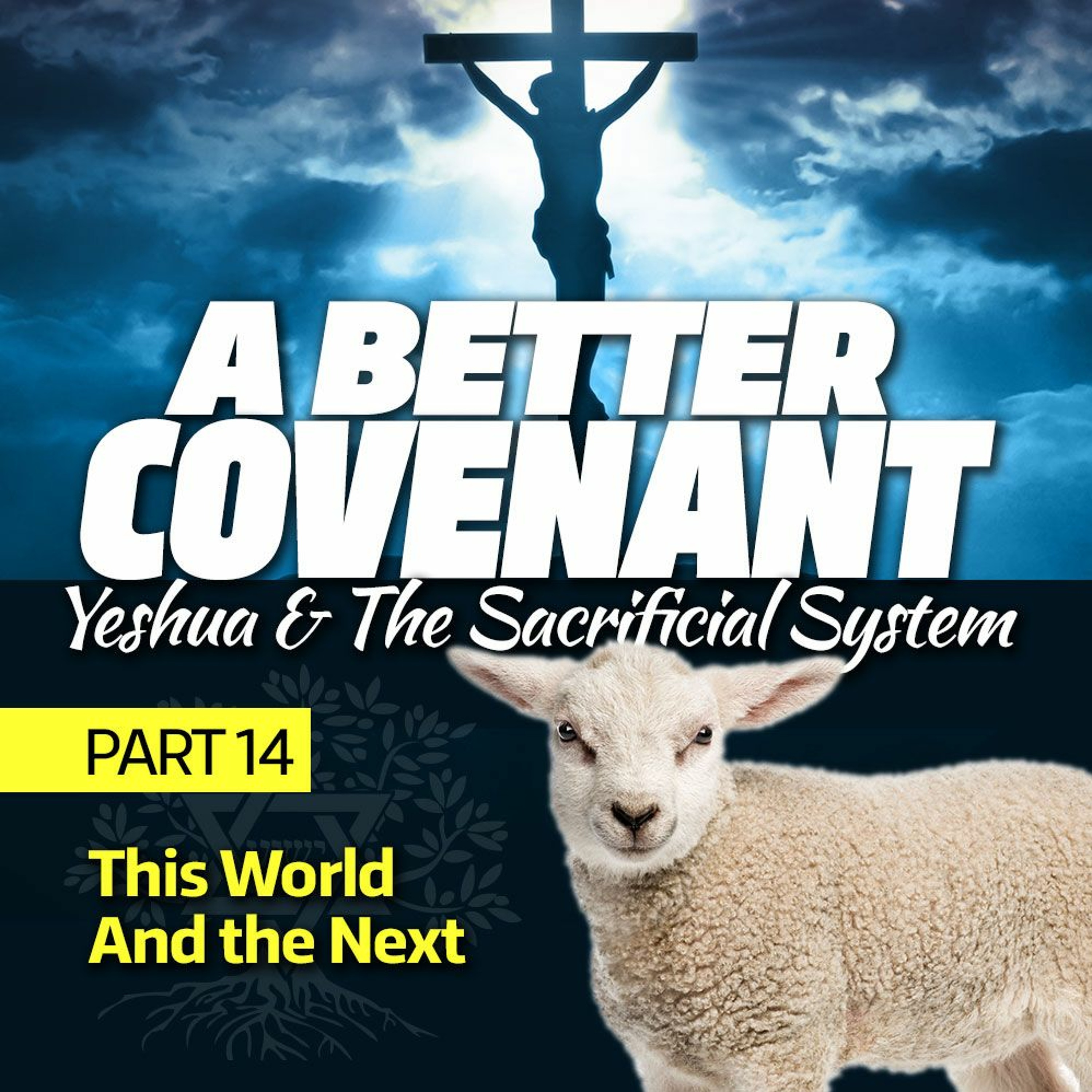Episode Transcript
[00:00:00] Are you perfect? Our culture says perfection is fake, so we settle for corrupt. We've traded Superman and Captain America for Deadpool and Jack Sparrow. We'd rather have a hero as flawed as us than one who might call us higher. But what if Yeshua's call to be perfect never meant being flawless? What if it meant being real and authentic, but transformed? Join me as we uncover the true meaning in Yeshua's call to perfection and in this week's five minute tour.
[00:00:35] Shalom and blessings from Shalom Macon, the place where disciples of Yeshua learn, connect and grow. I'm Darren and before I get into the five minutes of my five minute Torah commentary, let's cover a few quick facts about this week's Torah portion. This week we are studying the 48th portion of the Torah cycle and the fifth portion of the Book of Deuteronomy. We are in the portion of Shoftim Deuteronomy 16:18 21:9 and here. Here are the three things that you need to know about it. 1. Justice and impartiality Appointing Judges Shoftim begins with the command to establish judges and officers in every city. Justice justice shall you pursue. Deuteronomy 16:20 the Torah insists that justice must not be distorted by favoritism, bribery, or partiality. Leaders are called to treat the small and the great the same, reflecting God's own personal, perfect standard of judgment. A healthy society depends on integrity in leadership and fairness in judgment, values that remain just as vital for us today. Number two the King of Israel Limits on power the Torah anticipates Israel's future desire for a king, but sets strict boundaries on royal authority. A king must not multiply horses, wives, or wealth, and he must write for himself a personal copy of the Torah. The to study all his life. See Deuteronomy 17, verses 14 through 20. These restrictions show that true leadership is not about power or privilege, but about humility and obedience. Even the highest earthly ruler is subject to God's authority and must model covenant faithfulness for the people.
[00:02:10] Number three Prophets and Pretenders Discernment and Leadership Shoftim promises that God will raise up a prophet like Moses to speak his words faithfully to Israel. See Deuteronomy 18, verses 15 through 18. But it also warns of false prophets who may use signs or wonders or persuasive words to lead the people astray. The Torah provides a safeguard. God's true messenger will never contradict his word, and their words will come to pass. This call for discernment teaches us that charisma is not the measure of truth, but loyalty to God and his Torah is for us. Yeshua is the ultimate prophet, like Moses, and his voice is the one we follow, while testing every other claim against the unchanging Word of God.
[00:02:56] What does it really mean to live by the Spirit of the Law and not the letter of the Law? For centuries, believers have been told that the Law of God is a burden and something Yeshua came to set us free from. But what if that's not what the scriptures say at all? What if Paul's words about the letter of the law killing were never meant to pit God's spirit against his own commandments? In my new book, Spirit of the Law, I take a closer look at the writings of Paul, the teachings of Yeshua, and the Torah itself to uncover a consistent truth. The problem was never God's law. It was the human heart. And rather than repealing his Father's commandments, Yeshua came to transform our rebellious heart, empowering his disciples to walk in the fullness of the Spirit of the Law. But in order to accomplish this, we first need to understand what it means. If you've ever struggled to reconcile law and grace, Spirit of the Law will open your eyes to a richer, more faithful understanding of both. It will challenge assumptions, bring clarity to misunderstood passages, and invite you into a deeper walk of obedience, one that's alive with the Spirit of God. Pick up your copy today and let the Spirit of the Law transform the way you see God's Word and the way you live it. It may just be the missing key you've been looking for to unlock the Scriptures and open a whole new world of biblical understanding. Once it clicks, you'll want to invite others to join the journey as well. This week's Torah commentary is called Age of the Anti Hero and comes from a book, Five Minute Torah, Volume 3. We live in the age of the antihero. If you're not familiar with the term. This is the protagonist of a story whose life doesn't really have the expected qualities of a hero. Usually their motivations are self centered and their morality is all but absent, yet we cheer them on. Some recent examples of this are characters like Jack Sparrow, the Punisher, Deadpool, etc. Currently, the anti hero is one of the most popular character archetypes in storytelling because fans identify with them. The incorruptible hero that always saves the day has gone by the wayside. We look at those perfect heroes of previous generations. Superman, Captain America, Roy Rogers, and others.
[00:05:02] These have either completely come to naught or or have been reinvented to have questionable morals. Our culture desperately longs to identify with a hero, but we don't want the hero to be any better than ourselves. Anyone who doesn't teeter on moral collapse is seen as too perfect to be real, a shallow and plastic imitation of the real thing. This makes following a perfect God a challenge because so many people feel they can't identify with Him. This brings us to our Torah portion.
[00:05:31] The King James translation of Deuteronomy 18:13 says, Thou shalt be perfect with the Lord thy God. According to most people, this is what God expected of his people prior to the coming of Yeshua. Once Yeshua went to the cross, however, grace was poured out and God's standard of righteousness was removed. According to this line of reasoning, God knew that no one could actually do what he required them to do, so he sent his son to die so so that they wouldn't have to obey his silly rules anymore. To emphasize this point, many point to Yeshua's teachings in Matthew 5. Here he makes a series of contrasts between what appears to be the way people understood a particular commandment and the impossibility of truly keeping that commandment. He uses the phrase, you have heard it said, but I say to you to make each of his points. For example, he says, you have heard it was said, you shall not commit adultery. But I say to you that everyone who looks at a woman with lustful intent has already committed adultery with her in his heart. This is Matthew 5:27 28. Since keeping one's heart free from lust seems impossible, many people believe Yeshua must have been showing the Jews that their bar was so high that they could never reach it on their own. They could never be good enough to earn their salvation, so they should quit trying to follow the law. The only thing they could do is rely on Yeshua's righteousness and not their own. According to this line of reasoning, God expects perfection, and the only way we can be perfect is by accepting Christ. Yeshua seems to agree by concluding that section of his teaching with you therefore must be perfect as your Heavenly Father is perfect.
[00:07:12] Can we be perfect like God? But this is not at all what Yeshua was trying to convey, and this interpretation is has done great damage to Yeshua's Kingdom message. One of the core reasons many misunderstand both the Torah and Yeshua's teachings is because of this subject of being perfect. A more accurate translation of this concept is blameless. Blameless doesn't mean being perfect. It means avoiding intentional sins and being quick to repent from them if we do fall into them. Too many people believe that their bad habits and poor behavior are simply a constant within their lives. Although they may have trusted in Yeshua for their salvation, they will continue to find certain undesirable behaviors difficult to avoid. For some, it is anger. For others it is lust. For others it is drunkenness or envy or slander. But all of these make the fatal assumption that our redemption is only skin deep and can never truly transform who we are as a person. The work of Yeshua, however, makes us a completely new creation. According to 2 Corinthians 4, Yeshua points Our heart back to his Father anytime we begin to stray. Yes, we all have our shortcomings and fall into sin, but sin should be the exception in the life of the redeemed rather than the norm. If we are as prone to run to sin as much now as before we were redeemed, then we need to reevaluate our commitment to Yeshua. A few years back, I had a close friend tell me that he finally realized after living his entire life as a follower of Yeshua, that that he didn't have to live a defeated life and didn't have to struggle with sin the way he had always believed. He finally realized that Yeshua didn't just die so that we could be forgiven, but he was resurrected so that we could have a new life released from the chains of our sinful behavior patterns. Rather than just justifying his sin by saying it's covered by the blood, he realized Yeshua really could remove it from his life and it didn't have to be a part of his identity. Being perfect doesn't mean being plastic. It means being real, but not real in the sense of justifying hypocrisy. It means we live out our beliefs rather than making excuses for why we don't. It means living by the spirit rather than the flesh, dying to the self so that Messiah can live through us. Which life are you living? Are you living a life that glorifies your flesh?
[00:09:38] A life of hypocrisy, hiding your sins from the public eye? Or is it a life that has died to itself so that Messiah might live through you? The Hebrew month of Elul is more than just another month. It's a divine invitation. The sages called it the time when the king is in the field. What does that mean for you and me? Today, I've got a full video that dives into it, and trust me, you don't want to miss it. Just click the link right here. It.



